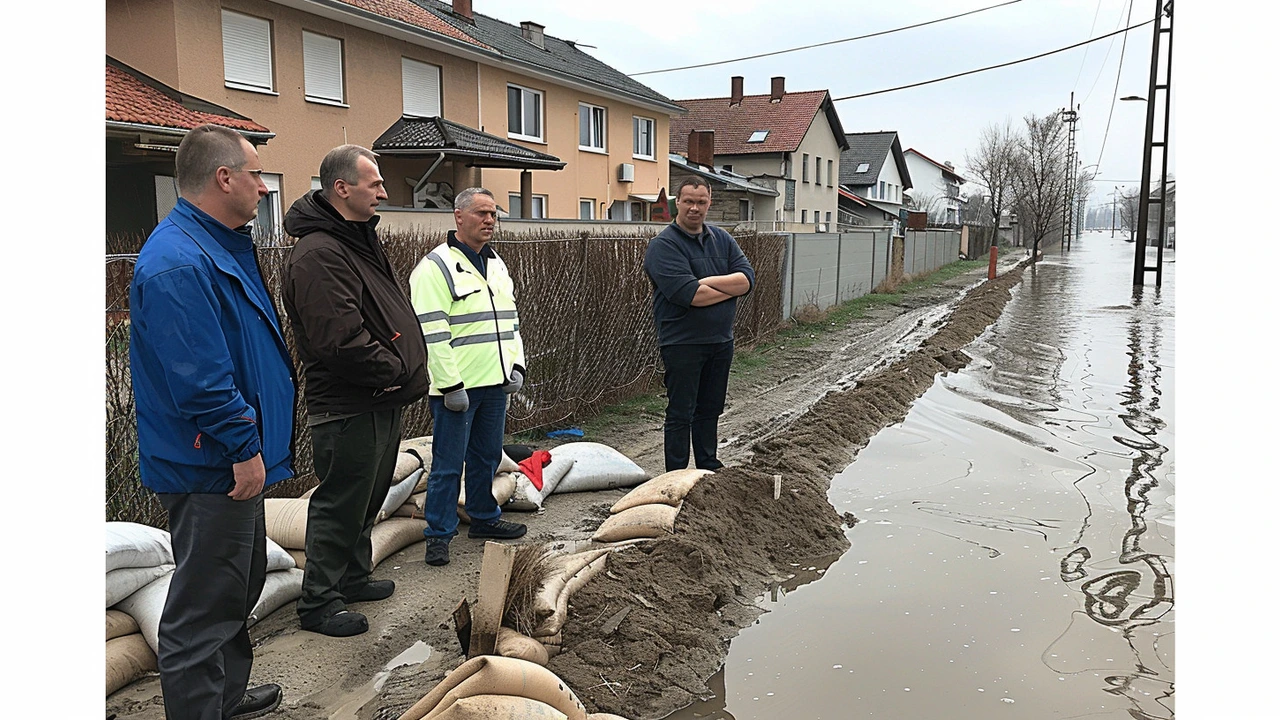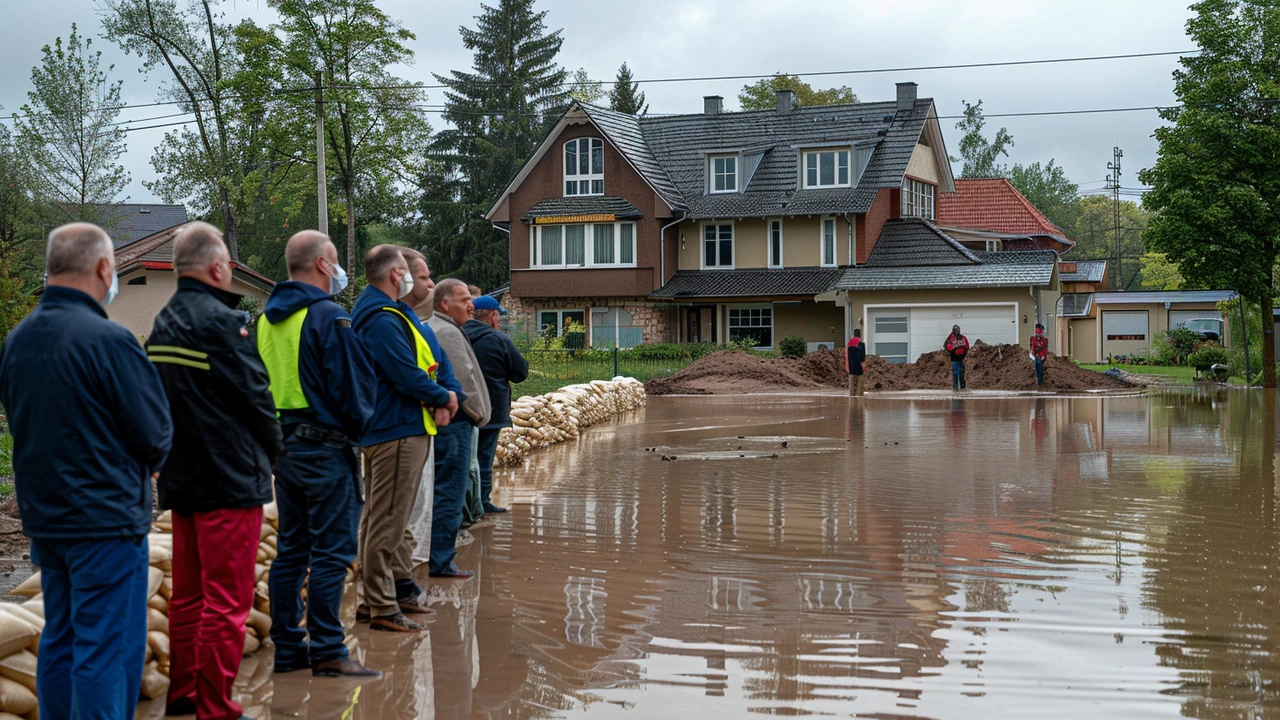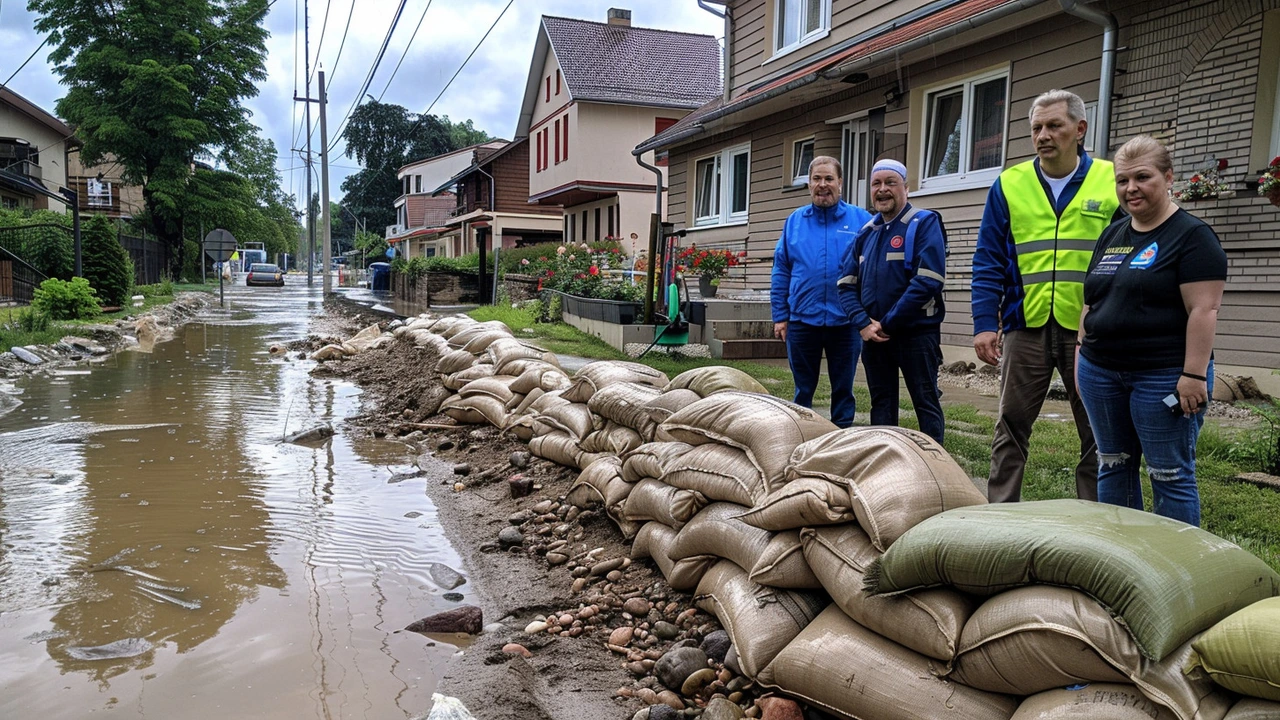Southern Germany Flood Catastrophe: Tragic Death Toll and Climate Change Concerns

Southern Germany Battling Deadly Floods
In an unsettling series of events, the southern part of Germany has been hit by severe flooding that resulted in the loss of four lives over the past weekend. The grief-stricken regions of Bavaria and Baden-Wuerttemberg find themselves in the grips of nature’s wrath as unrelenting rains continue to pound the area, leaving destruction and despair in their wake. Among the deceased are three people who were found in submerged cellars, their demise a grim reminder of the swift and lethal power of floodwaters. Additionally, a firefighter tragically lost his life when an inflatable rescue boat capsized amidst the high waters.
Chancellor Olaf Scholz promptly visited the flood-stricken areas, echoing the concerns of countless citizens and officials. His visit was not just a gesture of solidarity; it was a clarion call to address a deeper, underlying issue—human-induced climate change. Scholz’s words carried a heavy weight as he emphasized the increasing frequency and severity of such natural disasters, attributing them to the long-standing and escalating climate crisis.

Ongoing Challenges and Disruptions
As the heavy downpours persist, flooding has become widespread, leading to significant disruptions in daily life and transport. Long-distance rail routes to Munich have been suspended, as the waterlogged tracks prove impassable. For the local populace, the situation oscillates between hope and despair. In some areas, water levels have finally begun to recede, offering a brief respite. Yet, the reprieve is temporary as new floods emerge, prompting fresh waves of evacuations. The relentless nature of this crisis underscores the unpredictability and brute force of natural calamities exacerbated by climate change.
Bavaria's governor, Markus Söder, issued a stern warning about the ongoing critical and tense situation. He highlighted the challenges that regional officials and emergency services face, as they work tirelessly to mitigate the damage and aid those affected. The efforts to manage the situation are extensive, involving not just rescue and relief operations, but also long-term planning to prevent future disasters of this magnitude.
The Bigger Picture: Climate Change
The calamities in southern Germany are far from isolated incidents; they are symptomatic of a broader, global issue. Chancellor Scholz’s remarks centered on the idea that these floods are not mere anomalies but part of a recurring pattern triggered by climate change. The increasing frequency and intensity of such events worldwide have made it clear that addressing climate change is not just crucial; it is urgent.
Human activity, particularly the burning of fossil fuels and deforestation, has contributed to the increase in greenhouse gases in the atmosphere. This, in turn, leads to global warming and climate instability, manifesting in extreme weather events such as floods, hurricanes, and droughts. For countries like Germany, which prides itself on engineering and technological prowess, the recurring floods are a wake-up call to bolster infrastructure, improve early warning systems, and adopt more sustainable environmental practices.
Efforts to combat climate change must be multifaceted, involving policy changes, technological innovation, and public awareness. Governments at all levels need to prioritize climate change mitigation and adaptation strategies. International cooperation is equally essential, as the effects of climate change know no borders. The floods in Germany are a potent reminder of our shared vulnerability and collective responsibility.

Community and Resilience
Despite the grim circumstances, the human spirit of resilience and community shines through. Volunteers, local authorities, and emergency responders have been working round-the-clock to assist those in need, providing shelter, food, and medical care. The solidarity exhibited by the affected communities highlights the importance of social cohesion in times of crisis.
Stories of heroism and compassion abound, from neighbors helping each other to the tireless efforts of firefighters and rescue teams. This collective endeavor to rebuild and recover is a testament to human resilience and shared humanity. However, it also underscores the need for systemic change to prevent such tragedies from becoming commonplace.
A Call to Action
As the floodwaters slowly recede, the focus will shift to recovery and rebuilding. This will not be an easy task, and it will require extensive resources and coordination. But beyond the immediate recovery efforts, there is a pressing need to address the root causes of such disasters. Climate change mitigation must become a central theme in public policy and personal responsibility.
The recent floods in southern Germany serve as a stark reminder of the fragility of our environment and the urgency required in tackling climate change. It is not enough to respond to disasters; proactive measures are essential. Building resilient infrastructures, adopting sustainable practices, and fostering a global commitment to reduce carbon emissions are crucial steps in safeguarding our future.
In conclusion, the tragic loss of lives and extensive damage caused by the floods in Bavaria and Baden-Wuerttemberg are heart-wrenching. Yet, they also present an opportunity for reflection and action. Chancellor Scholz and regional officials must seize this moment to advocate for substantial changes and reaffirm their commitment to combating climate change. In doing so, they honor the memories of those lost and protect the generations to come.